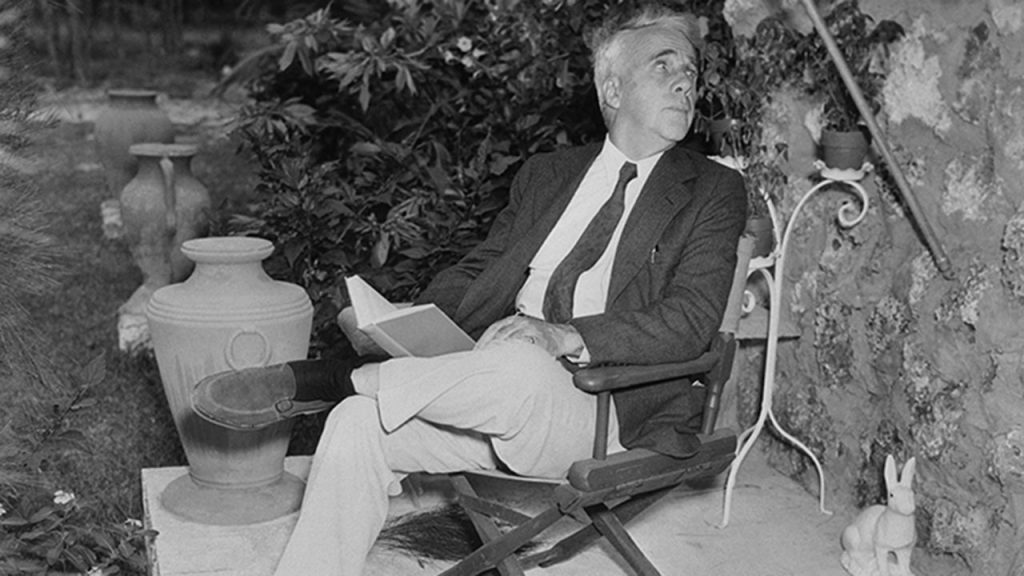Robert Lee Frost, a celebrated poet, was born in San Francisco on March 26, 1874. After his father’s death when he was 11, Frost moved with his family to Lawrence, Massachusetts, where he graduated from high school and later attended Dartmouth College. Frost dropped out of Harvard University due to health concerns and moved to New Hampshire with his wife and children to pursue farming. Despite facing setbacks and tragedy, Frost continued writing poetry and had some of his early works published.
In 1912, Frost relocated his family to the U.K. after facing rejection from American magazines. While in England, Frost published his first poetry books, “A Boy’s Will” and “North of Boston,” featuring poems such as “Mending Wall” and “After Apple-Picking.” These works garnered Frost recognition as a talented poet, and he eventually returned to the U.S. in 1915. Frost’s reputation continued to grow, and he became known for his poems about nature, traditional lyric and meter styles.
Throughout his career, Frost received numerous accolades for his poetry, including four Pulitzer Prizes and 40 honorary degrees. He also pursued a teaching career at various colleges. Frost’s literary accomplishments and contributions led to him being honored with the Congressional Gold Medal in 1960. He was invited to write and recite a poem for John F. Kennedy’s inauguration in 1961. Frost passed away in 1963 at the age of 88, leaving behind a legacy as one of America’s greatest poets.
As a poet, Frost’s works reflected his deep connection to nature, often portraying the beauty and challenges of rural life. His poems, such as “The Road Not Taken” and “Birches,” explore themes of choice, resilience, and the passage of time. Frost’s use of traditional forms and meters added to the appeal of his poetry, making him a respected figure in American literature. His enduring impact on the literary world is evident in the numerous awards and honors he received during his lifetime and posthumously.
Today, Frost’s legacy lives on through his timeless poetry, which continues to inspire and resonate with readers around the world. His ability to capture the essence of human experience and the natural world in his verses has earned him a lasting place in the canon of American literature. Frost’s poems serve as a reminder of the power of language and imagination to evoke emotion and contemplation. As we commemorate his birth on March 26, we celebrate the life and work of a true literary icon whose words continue to enchant and captivate audiences of all ages.















